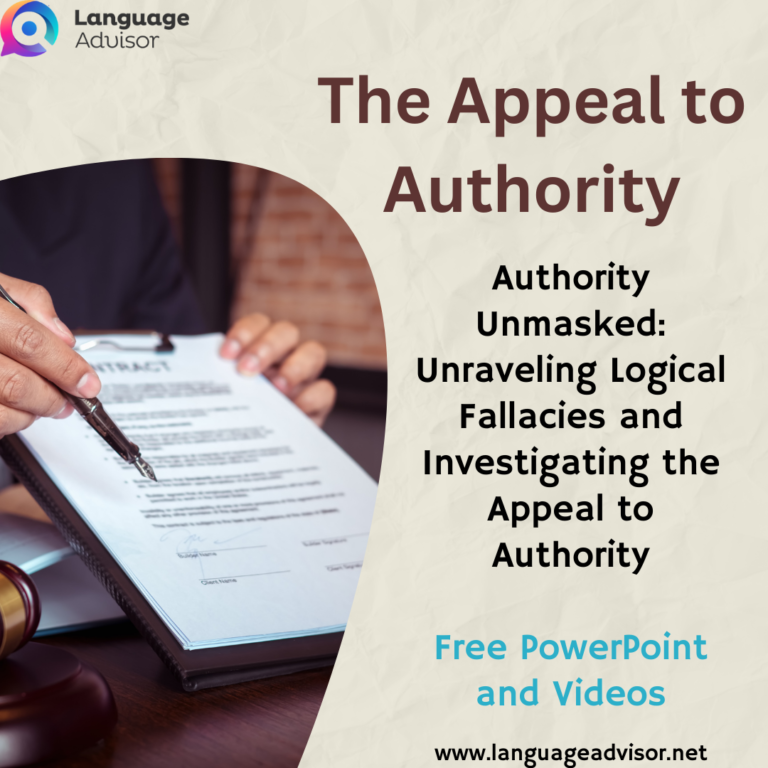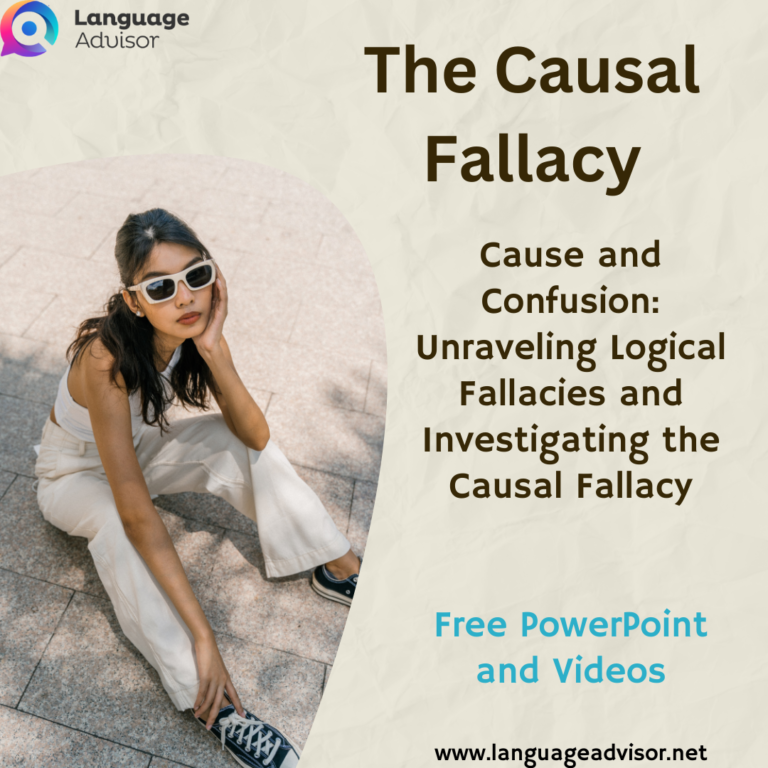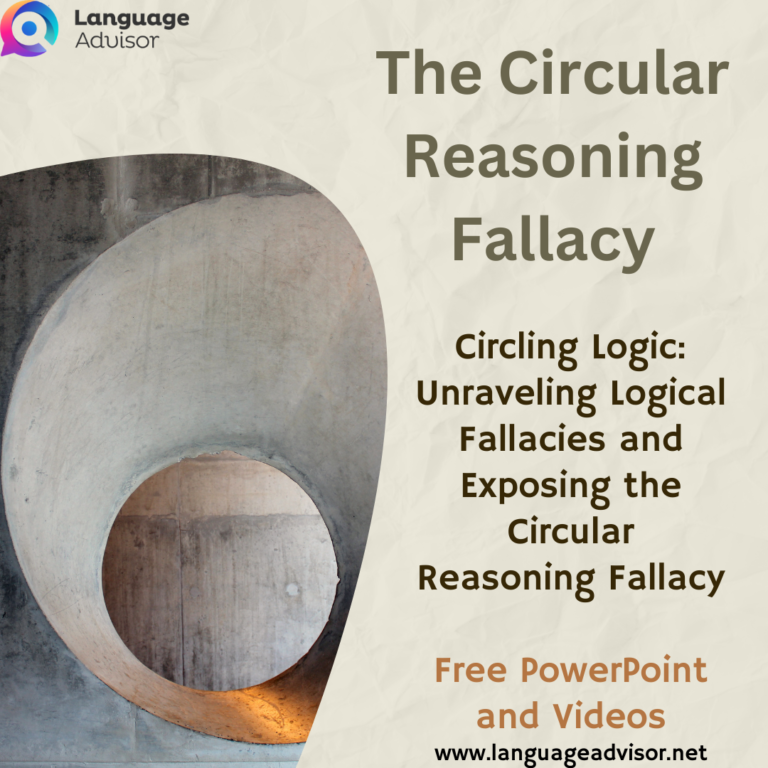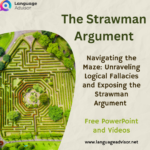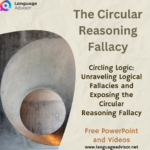Equivocation Exposed: Navigating Logical Fallacies and Unraveling the Art of Ambiguous Language. Free PowerPoint and Videos
Equivocation Exposed: Navigating Logical Fallacies and Unraveling the Art of Ambiguous Language

Equivocation Exposed: Navigating Logical Fallacies and Unraveling the Art of Ambiguous Language
What are logical fallacies?
Logical fallacies are like landmines; easy to overlook until you find them the hard way.
One of the most important components of learning in college is academic discourse, which requires argumentation and debate. Argumentation and debate inevitably lend themselves to flawed reasoning and rhetorical errors. Many of these errors are considered logical fallacies. Logical fallacies are commonplace in the classroom, in formal televised debates, and perhaps most rampantly, on any number of internet forums.
But what is a logical fallacy? And just as important, how can you avoid making logical fallacies yourself? Whether you’re in college, or preparing to go to college; whether you’re on campus or in an online bachelor’s degree program, it pays to know your logical fallacies. This article lays out some of the most common logical fallacies you might encounter, and that you should be aware of in your own discourse and debate.
A logical fallacy is an error in reasoning common enough to warrant a fancy name. Knowing how to spot and identify fallacies is a priceless skill. It can save you time, money, and personal dignity. There are two major categories of logical fallacies, which in turn break down into a wide range of types of fallacies, each with their own unique ways of trying to trick you into agreement.

A Formal Fallacy
A breakdown in how you say something. The ideas are somehow sequenced incorrectly. Their form is wrong, rendering the argument as noise and nonsense.
An Informal Fallacy
Denotes an error in what you are saying, that is, the content of your argument. The ideas might be arranged correctly, but something you said isn’t quite right. The content is wrong or off-kilter.

Equivocation
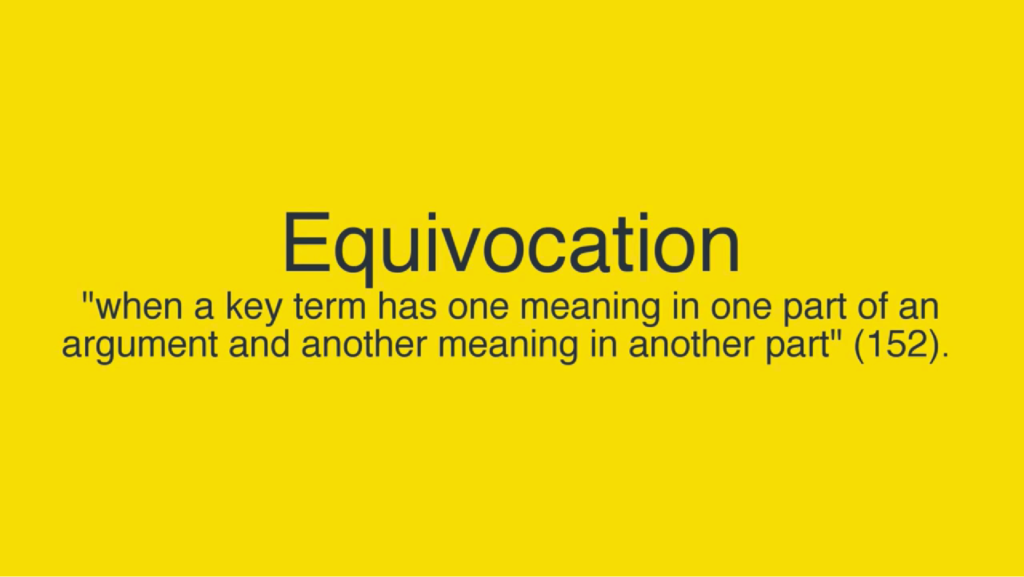
Equivocation happens when a word, phrase, or sentence is used deliberately to confuse, deceive, or mislead by sounding like it’s saying one thing but actually saying something else. Equivocation comes from the roots “equal” and “voice” and refers to two-voices; a single word can “say” two different things. Another word for this is ambiguity.
When it’s poetic or comical, we call it a “play on words.” But when it’s done in a political speech, an ethics debate, or in an economics report, for example, and it’s done to make the audience think you’re saying something you’re not, that’s when it becomes a fallacy. Sometimes, this is not a “fallacy” per se, but just a miscommunication. The equivocation fallacy, however, has a tone of deception instead of just a simple misunderstanding. Often this deception shows up in the form of euphemisms, replacing unpleasant words with “nicer” terminology. For example, a euphemism might be replacing “lying” with the phrase “ creative license, ” or replacing my “criminal background” with my “youthful indiscretions,” or replacing “fired from my job” with “taking early retirement.” When these replacement words are used to mislead people they become an equivocation fallacy.


Equivocation Exposed: Navigating Logical Fallacies and Unraveling the Art of Ambiguous Language
DOWNLOAD THE POWER POINT FOR FREE
Logical Fallacies

Also check out these free resources on Critical Thinking and Logical Fallacies





